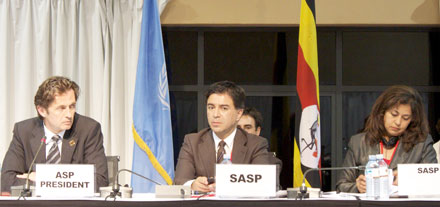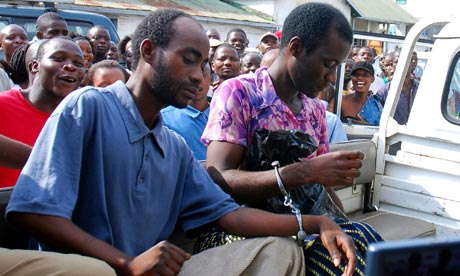
By Celeste Little
Impunity Watch Reporter, Africa
KAMPALA, Uganda-Though fifteen hundred to two thousand delegates were expected, the International Criminal Court (ICC) Rome Statute Review Conference in Kampala, Uganda concluded on Friday, welcoming 4600 representatives of states, intergovernmental and nongovernmental agencies.
The conference spanned two weeks and though it covered many issues that were central to the functioning of the ICC, its primary focus was to define the crime of aggression and take stock of the the effect of the statute on international criminal justice.
The conference ended having accomplished the changes it aimed for–amending the Rome Statute, to include the crime of aggression and designating the ICC’s jurisdiction regarding the newly defined crime. The actual exercise of this jurisdiction must be decided on January 1, 2017 by a majority of State Parties.
The court also amended the statute to bring the use of certain poisonous weapons and expanding bullets, asphyxiating or poisonous gases under the jurisdiction of the court as war crimes even when used in a domestic nature, according to the ICC’s closing press release.
In taking stock of the statute, the conference considered the rights of victims to justice, determining that more outreach should be made to those victims and more donations should be made to the Trust Fund for Victims. The ICC put an important focus on states’ relationship with it, noting that in order to achieve justice, complementarity and cooperation from states would be important.

